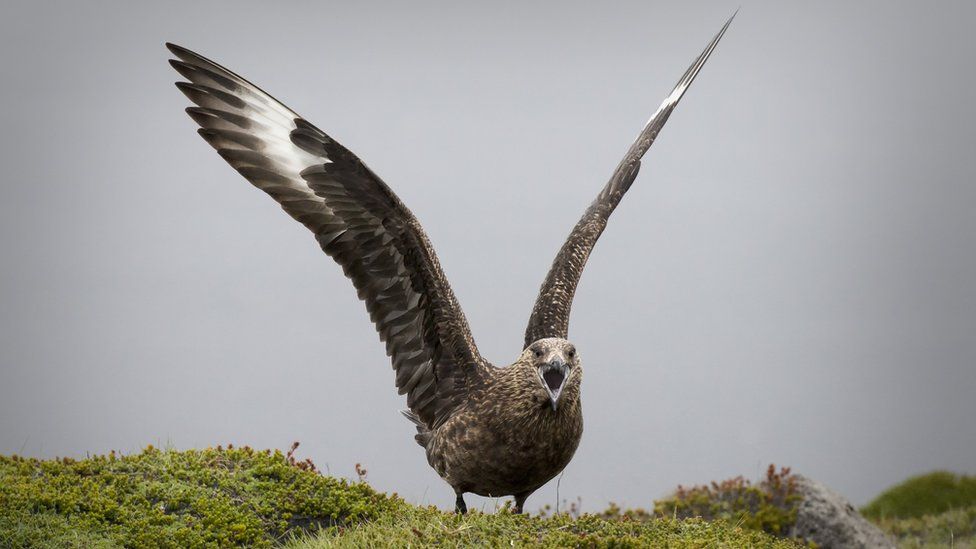-

-
-
Loading

Loading

According to a report by the RSPB, the population of Great Skuas, a powerful bird known as the "pirate of the seas," has seen a significant decline due to avian flu. The charity's report states that their numbers in 2023 decreased by 76%. Avian flu also caused serious reductions in populations of Gannets and Roseate Terns, with thousands of wild birds dying from the flu in 2021-22. Prior to the outbreak, the populations of these three species were actually increasing. The H5N1 strain of avian flu spread to wild birds in the summer of 2021, resulting in the death of thousands of creatures. The RSPB emphasizes that avian flu is now one of the biggest immediate threats to the conservation of multiple seabird species. The survey conducted by the RSPB in May-July 2023 found that Great Skuas, Gannets, and Roseate Terns had all declined due to avian flu, and the Sandwich and Common Terns were also likely to have been affected. Compared to a major census of bird populations in 2015-2021, Gannet populations were down by 25%, Roseate Terns by 21%, Sandwich Terns by 35%, and Common Terns by 42%. Nearly the entire population of Great Skuas in the UK resides in Scotland, where at least 2,591 died in 2022, with 1,400 coming from a single colony on Foula Island, Shetland. The total population in the UK has declined from 9,088 to 2,160. The RSPB emphasizes that Britain plays a crucial role in protecting these birds globally, as many of them breed in the country. Additionally, Gannets were heavily impacted in 2022, with 11,175 killed in Scotland and an estimated 5,000 deaths at Grassholm in Wales. The total number of Gannets in the UK declined by 25% in 2023, from 227,129 to 171,048. While avian flu has become less severe in the UK recently, it continues to cause mass mortalities in birds around the world. In January, it was even detected in elephant and fur seals in Antarctica for the first time. The RSPB warns that the virus still poses a long-term threat to UK birds, as it continues to mutate. In addition to avian flu, UK seabirds also face other threats such as climate change, mortality resulting from fishing, the impacts of offshore wind developments, and a decline in food availability.